They can be hard to track — even for political insiders.
There’s TogetherSF, GrowSF, Abundant SF, Advance SF, ConnectedSF, Progress SF, Stop Crime SF, Forward Action SF and Neighbors for a Better SF, to name a few.
They may be difficult to tell apart, but together they represent a tsunami of political spending unlike anything San Francisco has seen before.
A Mission Local analysis of campaign finance filings, tax returns, news reporting and more reveals that a vast network of politicking has emerged in San Francisco since 2022, with donors, staff, 501(c)(3) nonprofits, 501(c)(4) “social welfare” organizations, political action committees and others organized in a complicated, interrelated web of mutual support.
The network is channeling millions of dollars into political causes, much of it aimed at getting rid of progressives and their policies.
“There’s no place in the state of California or the country that has this many, separate, billionaire-led political advocacy groups,” said Jim Ross, a 30-year political consultant in San Francisco. “It seems like every other day there’s a new group. Every fricking day.”
Explore Mission Local’s Analysis of Big Money Groups
Eric Jaye, a political consultant with nearly 40 years of experience in the city, said that San Francisco has had a history of political participation from neighborhood, labor and business groups. The new advocacy groups, however, are larger, rougher and less transparent, he said.
“What’s new is the scale, the tone, the focus on raw politics and the, for lack of a better word, brazenness of the behavior,” he said. “You have many of the richest people in the world behaving like aggrieved and powerless activists … When the powerful begin to behave as if they’re powerless, it can heat up the conversation awfully fast.”
Sometimes, the groups’ objectives can be described as urbanist; attempts to facilitate more housing construction, for instance, or increase transit and biking infrastructure.
But others are straightforwardly conservative, such as weakening police oversight; increasing punitive consequences for drug users and dealers, homeless people and the mentally ill; and increasing the power of the mayor in a city with one of the strongest mayoral systems in the country.
“You take social issues off the table, and that’s a Republican agenda,” said Ross of the groups’ objectives.
The arrangements employed by the groups are all legal, making use of decades-old sections of the American tax code. Similar tactics are used across the political spectrum, by labor unions, environmental groups, civil rights organizations and other progressive causes.
With one crucial difference: The spending on one side in San Francisco far eclipses the spending on the other.
During the 2022 school board recalls, for instance, massive contributions from wealthy donors and Neighbors for a Better San Francisco ensured that the pro-recall campaign outspent the opposition 24-1. The recall campaign against then-District Attorney Chesa Boudin, also backed by deep-pocketed donors and Neighbors for a Better San Francisco, spent twice as much money as their opponents.
This year, efforts to oust progressives from the local branch of the San Francisco Democratic Party — backed by Abundant SF and tech money — are outraising opponents 4-1.
Breaking down the money funding the recalls
The groups in the network are organized like nested Russian dolls: Wealthy donors — often in tech — give to 501(c)(4) “social welfare” organizations, which give to PACs, which give to political candidates and ballot measures. Other donors give to 501(c)(3) nonprofits, which can donate cash and staff time to the 501(c)(4)s working on campaigns.
The spending must remain siloed to avoid flouting campaign finance laws but, in at least two cases, these groups have toed the line on the rules — or crossed it entirely.
Often, a single group will use multiple entities: Neighbors for a Better San Francisco and TogetherSF, for instance, have both a 501(c)(3), a 501(c)(4) and several PACs; GrowSF has a 501(c)(4) and PACs; other PACs, created specifically for a single measure or candidate, take donations from several groups.
The structure allows groups to legally accept tax-deductible funds with one hand, and disperse money directly to candidates, ballot measures, slate mailer organizations and other advocacy groups with the other.
Through the different entities, they then print up voter guides, send campaign flyers, take out billboard ads and mail checks to candidates, measures, slate mailers, other nonprofits — or each other.
New? Or business as usual?
Since the 2022 election cycle, the biggest advocacy groups have spent upwards of $10 million on various projects, attacking what they see as progressive overreach in San Francisco.
They are generally funded by the same coterie of wealthy individuals. The old money players, like real estate magnate Brandon Shorenstein, socialite Dede Wilsey, venture capitalist Ron Conway and mayoral candidate Daniel Lurie, make up a bulk of the giving.
Then there are the new players, like Ripple executive chairman Chris Larsen, Twitch founder Emmett Shear, Y Combinator CEO Garry Tan, tech investor Michael Moritz and many more. Often, these well-heeled donors will donate directly to campaigns at the same time as funding an assemblage of advocacy groups.
Some, like Jim Sutton, who has been a campaign-finance lawyer in San Francisco for more than 30 years, believe that the new coalition of advocacy groups is not very novel: Wealthy individuals in San Francisco have always been involved in city politics and, to do so, they have used the panoply of options afforded by the American tax code.
“There were 501(c)(4)s and political committees set up to try to capture Gavin [Newsom] when he was mayor — he called it the ‘silent majority’ — and, literally every five years, there’s new groups,” said Sutton.
“Before tech, it was downtown business,” added David Latterman, a retired political consultant largely for moderate candidates, including the late Mayor Ed Lee. “The moderate side of San Francisco represents business interests” — and that’s how it’s always been.”
Others, however, feel the new wave is different: Rather than big business focusing on projects of immediate benefit, the crop of tech-backed advocacy groups, some said, is aiming to take the heart and soul of San Francisco.
“I think a lot of them see this as a battle of ideologies,” said Ross, the longtime consultant.
Until five or 10 years ago, Ross added, big donors were “really focused on self-interested issues” — like a campaign committee for short-term rentals, or against the soda tax — while efforts now are geared towards structural change.
“They went from being very practical, issue-based, to being very ideological,” he said. “They actually believe that there is a Democratic or Republican way to take out the garbage.”
Another longtime moderate consultant, who is sympathetic to the groups, agreed, saying San Francisco’s special interests were historically more “downtown-centric” and focused on “taxes and the overall business environment.”
Now, however, a “broader coalition” is homing in on “housing, safety, the more relevant social issues of the day,” he said. He asked to remain anonymous for fear of professional repercussions.
Ross, for his part, sees a difference without a distinction.
The policies embraced by the new groups would be identical to the platform of a “big city Republican mayoral candidate,” he said, focused on “moderate to conservative” approaches to business deregulation, increased policing and more punitive consequences to homeless people and criminals.
Sometimes, that Republican affinity is explicit. William Oberndorf, a mega-donor to Republican causes, is the director of Neighbors for a Better San Francisco’s nonprofit arm, and has given some $900,000 to its advocacy sister organization; he has also donated tens of thousands to measures backed by the groups.
Richie Greenberg, a former Republican contender for San Francisco mayor, was the first to start a petition to recall Boudin, whose ouster was one of the most significant losses for progressives in recent years.
Greenberg’s petition received tens of thousands of signatures before a rival Democratic effort from Neighbors for a Better San Francisco, the most influential group in the public pressure network, ultimately succeeded. Greenberg is also backing the San Francisco Democrats for Change slate to the local branch of the Democratic Party, a group of candidates bankrolled by donors in the network that is trying to wrest control of the party body from progressives.
Mayor London Breed, too, has announced she will join a Republican-led effort to overturn Proposition 47, the 2014 law that sought to address prison overcrowding by reducing incarceration for personal drug use and property theft of less than $950. She and District Attorney Brooke Jenkins, both supported by the network, have taken aim at the law as they try to address street drug use and property crimes.
All in all, Ross said, the groups’ advocacy is meant to “make this a city safe for middle-class families.”
TogetherSF, Grow SF and Neighbors for a Better San Francisco did not respond to requests for comment or declined to comment.
Todd David, the leader of Abundant SF and a key player in the network, who was closely involved in the school board recalls, redistricting and various electoral campaigns, said San Francisco “hasn’t lived up to its potential over the last 10 years,” and that various groups are aiming to change that.
He said the city should be a place where “all people and families can thrive, it’s safe to be on the street, there is enough housing for people, you can get around the city safely via public transit, bike or car, and you can send your children to public schools and they can get a great education.”
Nasty and brutish
Policy aside, the rhetoric emerging from some of the leaders and donors in the network is pugnacious, to say the least.
Jaye, the longtime political consultant, said that while politics generally has become far more cruel, on both the left and the right, only one side has “a group of billionaires funding their coarseness.”
Steven Buss, co-director of Grow SF, called Board President Aaron Peskin a “ratfucker” in a 2023 disagreement about autonomous vehicles. After the murder of Bob Lee last April, Jason Calacanis, who donated to the recall efforts, said of a police commissioner who urged calm after the Lee killing: “These are the lunatics running San Francisco … Evil, incompetent fools and grifters who accomplish nothing except enabling rampant violence.”
Late last month, Tan, the CEO of Y Combinator and mega-donor to Grow SF, wrote in an online tirade that progressive supervisors should “die slow,” after which anonymous mailers were sent to five of the supervisors’ homes citing the social media posts.
Ross, for his part, said the involvement of the wealthy is damaging in more ways than one. The fact that there are such vast sums of money at play in the city, and the fact that San Francisco is often a “test lab” for new technology industries, like short-term rentals, ride-sharing or driverless cars, means local regulations have an outsized importance — and electoral campaigns doubly so.
“The problem in San Francisco with politics is different from the problem you have anywhere else in the country,” said Ross. “Most places, there’s not enough money to run effective campaigns. San Francisco is the opposite: There’s too much money.”
The money, he said, heightens the stakes.

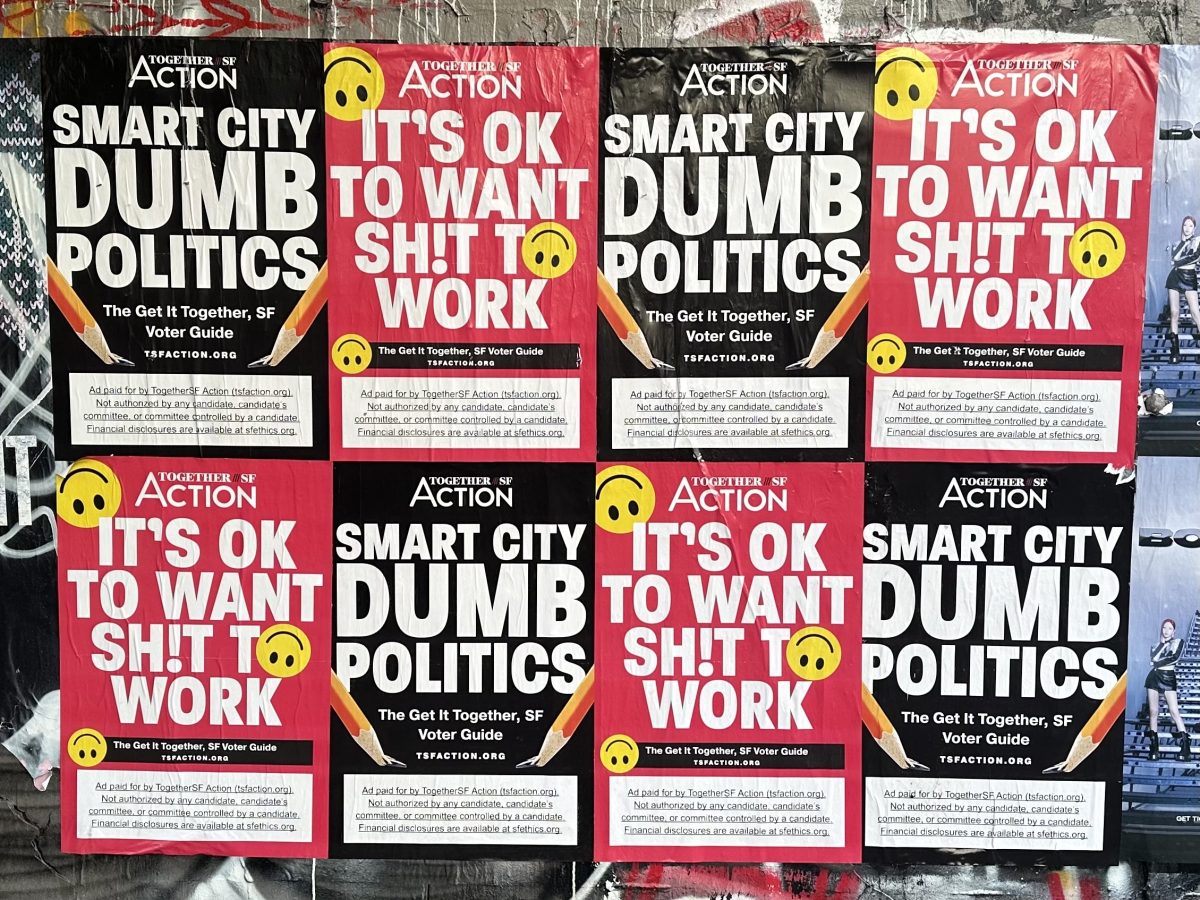
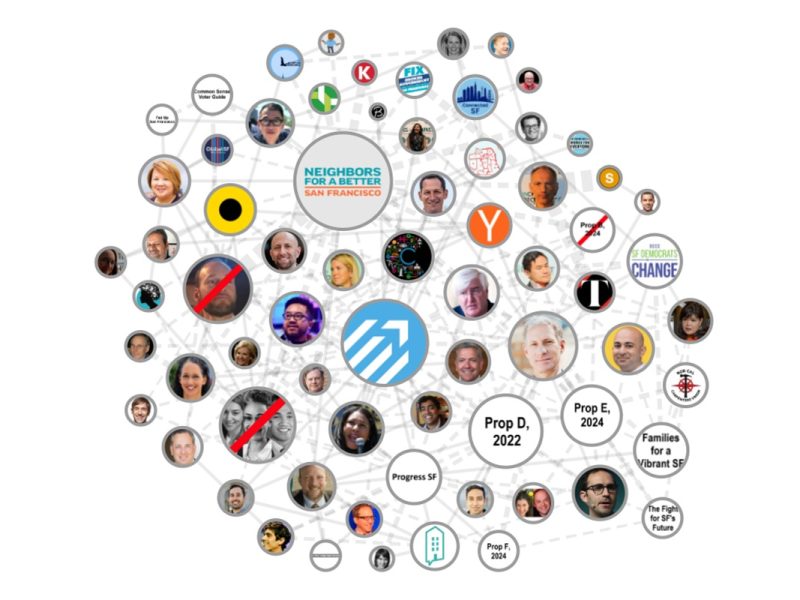

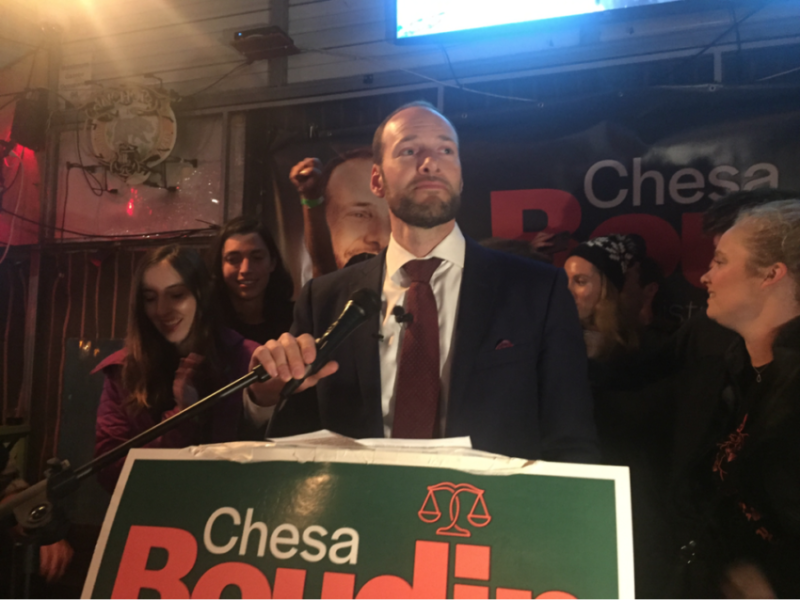
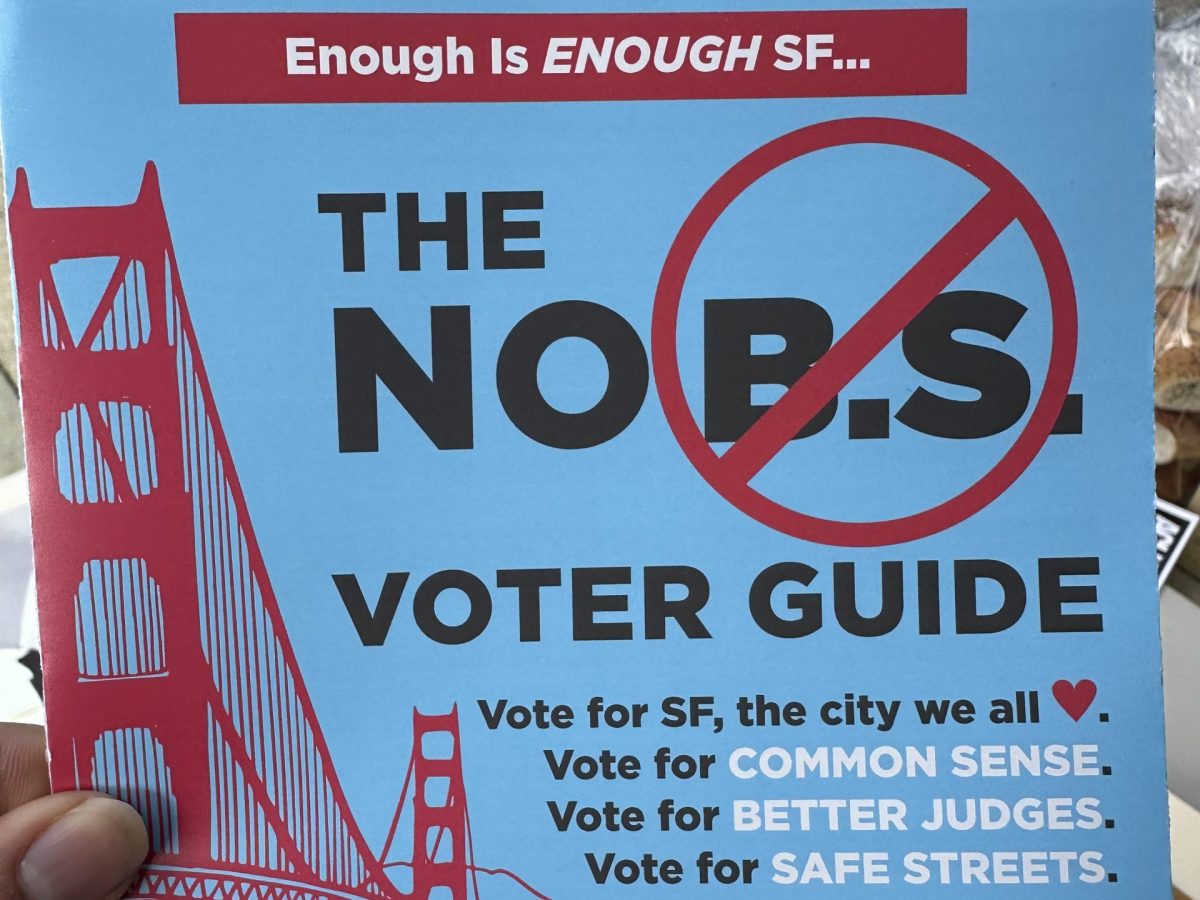
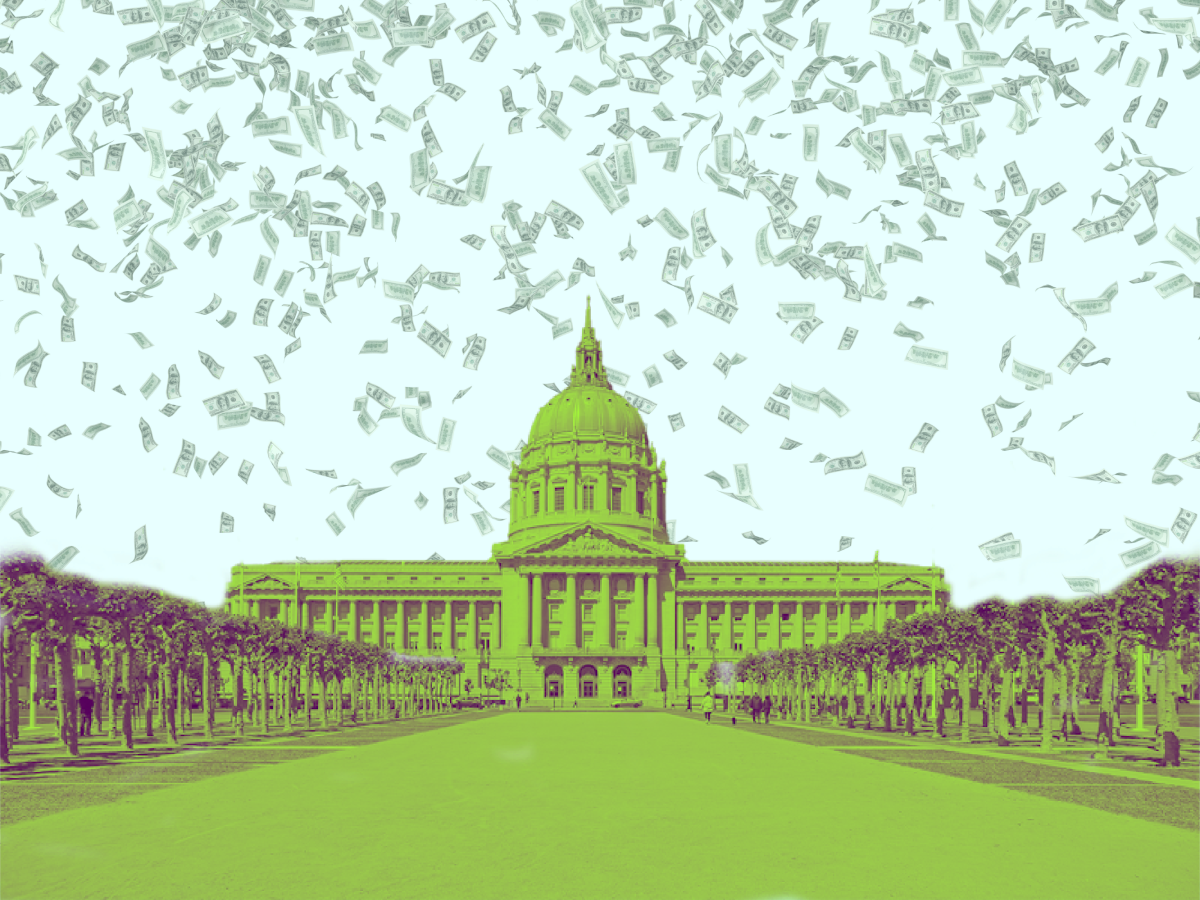
We want less crime, especially including an end to open-air drug dealing. And we want city leaders who prioritize law-abiding citizens over homeless drug addicts.
Why is that so hard to understand?
You monster!
And yet your policies would lead to more crime and more drug dealing. It’s also duly noted the way you openly say that people who don’t have a stable place to live and who are dealing with addiction should just be … cast aside.
Characterizing efforts to close the all-night open-air drug market and enforce laws against selling stolen goods as “casting aside” anyone is ridiculous.
The current policies that have led to almost 800 people dying of overdose last year. If push comes to shove, I would rather they be in jail or forced rehab than dead. The far left lacks compassion.
But the far left is not running the show. The moderate mayor is. If the far left had its way we would have safe consumption sites which has lowered overdose rates in other places that have them.
Jim Ross’ assertion that “You take social issues off the table, and that’s a Republican agenda,” is just bonkers. A statement like that is a reflection of the myopia of the political class in SF, which hasn’t faced an actual opposition party in decades, so it demonizes any perspective that isn’t a mirror reflection of its own.
A Republican agenda would be to defund and scale back social services to the point that private entities, generally religious ones, become the primary provider of basic needs to those who cannot afford them, all but eliminate recovery services within their jurisdiction, all while the minor children of immigrants work hard labor jobs that American adults won’t touch. A Republican agenda would fire teachers that don’t promote Christian prayer in the classroom and put creationism alongside evolution in a curriculum. I’d provide more examples but it’s just too gross to think about.
The linked page in this article as the evidence of conservative agenda against drug dealers states:
“City departments need to work cross-functionally to make recovery the goal. Programs should be abundant, easy to access, and effectively held to goals and standards.”
And further states:
“Local law enforcement must prevent drug dealers from preying upon recovering users and creating new user by arresting and prosecuting dealers. The city should coordinate with the state and federal authorities to address cartels bringing drugs to the city.”
Making tools of recovery available and ensuring that those providing them are doing good work on behalf of the public is not conservative. Arresting those who put poison in people’s hands and exploit the most vulnerable is application of rule of law. These aren’t Republican principles, or even conservative ones. These are basics of the social contract.
Right? These are two factions of Democrats that are fighting. Some people really do live in a bubble.
Every single word that wafts out from this overfunded menagerie of rage farmers could have been uttered by Archie Bunker, an abundance of reactionary hysteria.
“Just Say No” == “Recovery.”
It’s good to see at least some reference to the SF political machines that preceded the current billionaire-funded one. The problem with SF is that most voters have never cared about politics at all, and that suited the political class typified by people like Peskin just fine. The city used to be run by a combination of rich downtown developers who shared power with labor unions who in turn have controlled much of city government. The result is a serious decline in the quality of life for those of us that have raised families here. The Guardian article is ridiculously distorted; the mostly progressive political class that has taken over SF government in the last 15 years is angry that rich tech types actually care enough about life for ordinary people here that they are putting money into issues people like me care about, We’re not Republican; we just want to people to stop dying of overdoses or homelessness, we just want housing to be built and the public schools to not be run into the ground.
Progressives lost political power 15 yr ago. Conservative Democrats have held the strong mayor’s office since 1996 and governed without whining that the charter’s checks and balances were holding them back. Until Breed.
Bill,
To cut out drug dealers just follow the European model and decriminalize drugs.
You want housing for the masses ?
Put a Moratorium on construction of Market Rate Housing until the rich are forced to live in tents on the sidewalks in front of your homes and businesses.
You want the Homeless encampments out of sight ?
Move them to the Harding and Lincoln golf courses, the former of which is controlled through a PGA sellout to the Prince who beheaded that Washington Post journalist.
h.
I’m a middle class San Franciscan who comes from an immigrant family. I came to the city with little money and worked my way up. While I once supported progressive policies and politicians I saw over many years how they ill served the voters. The progressives had little concern for the interests of tax paying San Francisco residents. They ended up being more concerned about grand standing and little about providing practical solutions to San Francisco challenges. I welcome the input of anyone who will work to move the progressives out and vote in solutions oriented leadership.
Charles,
You’re brainwashed.
Last time Progressives held power in SF was under Art Agnos.
I started to write, ‘At least they didn’t shoot him.”
But, they did.
h.
I wish Mission Local would write about the merits of the candidates rather than trying to tarnish those they don’t agree with.
I’m confused. You say that “The arrangements employed by the groups are all legal,” yet you link to an ethics commission finding that one of these groups was fined for violating city and state campaign finance laws twenty-five times . . .
The only way to beat concentrated capital in political contests is by organizing enough residents to support another path forward.
Progressive politics is in hospice care because those who got paid to hijack the movement to insulate the conservative Democrat machine refuse to organize residents.
The only thing that these three formations, conservative machine Democrats, professional progressives and alt right tech elites share in common is an utter contempt for San Francisco residents and participatory democracy.
Progressives have not offered up a framing narrative to contest the alt right takeover. There is no broad plan, like the contract on america, to sharpen the distinctions between the alt right and progressives. Preston aside, progressive electeds have deteriorated to technicians for funding agencies.
Such a plan drawn up by the hijackers would be limited to SFDPH, HSA and Homelessness contracts. There is nothing on Muni, Rec and Park, DPW, Housing and Land Use, SFUSD, SFPD, corruption/ethics because nonprofits are not paid to advocate in those areas of policy, to the contrary, they’ve kicked all such advocates to the curb and been paid for it.
Keeping the racketeers funded with tax dollars by an appeal to poverty charity is not a winning appeal.
Thus, the alt right frames–conservatives are “moderates,” crime and squalor are out of control, progressive Democrats as Trotsky reincarnated, the Archie Bunker worldview–remain uncontested and dominate.
We really need to overturn Citizens United.
The rich kids who sought to make SF their playground a decade ago with their “move fast and break things” companies are now going to institutionalize their changes.
Don’t think for a second they have anyone else’s best interest at heart but their own. They will take your vote, but not give you anything in return.
Todd David has always seemed to try his very best to run with whomever he thinks are the “cool kids.”
(Todd, this is not a good look on you or your honestly, truly lovely family. You need to take a 15-year step back and remember who you were, and it was not this.)
I think that the billionaire assault is happening now because they, the landlords, the real estate speculators and what’s left of the downtown corporate crowd have forced enough poor and working class people out of town to allow them to consolidate an electoral base of rich and well-to-do elites, and give them a good shot at allowing them to take full control.
Had the progressive policies that governed this city not created crime, encampments, and intolerable conditions, people would not be voting for change. This sentiment is not created by billionaires— it’s because so called progressive policies and elected officials have FAILED.
Campers,
I’d say that Mission Local itself has had a change of tone over the last couple of years with writers going to ‘expert’ sources who have spent their careers working paid gigs supporting ‘Downtown’s Agenda’.
Jaye went door to door at publications in 2003 complaining to owners about their not being friendly enough to Gavin Newsom.
Ross shut down Chesa Boudin’s key computer apps on the eve of the election Boudin eventually won and demanded $50,000 to turn them back on because he had a policy difference with the candidate.
David Latterman’s entire career has been spent as an advocate for the Super rich.
These are the people dominating ML reporters’ rolodex searches.
Along with Marcos I’m probably the most prolific voice for Progressive candidates and their causes over the last several decades and Jaye and Sam Lauter have managed to enforce a ban on my comments and columns across the local spectrum since a friend constructed my first computer from spare parts in 1997.
On Mission Local itself some of my best work has disappeared into Spam Filters when addressed to writers like Jarrett and Barros and Balakrishnan.
Eskenazi dug out and finally posted a few while assuring me these were glitches.
I felt forced to bring back my old ‘Bulldog blog’ to insure my ideas at least had a chance of being published and distribution hacks have cut readership from 2000 during the period in which the Class of 2000 was cutting Mayoral power to a few dozen presently.
As a believer in Musk’s ‘Simulation Theory’ I don’t care much as long as I personally do everything I’m able to do to get ‘my side’s’ word out.
All things considered, Mission Local is the Alamo for Marcos and myself and a few others like Oceanview Momma in this thread.
More and more ‘Moderate’ voices are filling the comments section with anonymous digs at the Prog World.
Now while I rail against ML management’s move to solicit corporate advertising, it seems inevitable.
Reminds me of the attacks on Pat Murphy and Luke Thomas for publishing my work in the San Francisco Sentinel which eventually banned my work (I never worked for them anyway and only allowed them to publish my writing) …
Murphy became so overwhelmed with the pressure and propaganda that he even changed his religion !
I’m surrounded by this network of Manchurian candidates.
My original ‘SFBulldog’ call sign was usurped by a higher bidder and became a Real Estate site last I looked.
Even Willie Brown called the carefully executed 5% margin that Recalled Chesa in an off year ballot count …
Willie said that it was impossible to, “run against yourself” as Boudin was forced to do a farce and that Chesa would have won had he entered the election that came in the following year.
Will Jarrett came down on side of Bill Olbendorf and called Boudin’s loss “decisive”.
Conservatives long ago bought the Major Media in San Francisco from the Chron to SF Examiner and drove Betsey Culp’s SF Call out of existence.
Now, they’re shooting at life rafts like Mission Local.
Check out my dawg voice at:
SFBulldogblog.com
I got a bad feeling about this one, Vern.
Go Niners !!
h.
Firstly, these types of “donations” should not be tax deductible. But more importantly, we cannot let a bunch of carpetbagging, Republican/Republican-leaning billionaires take over our city’s government.
Everyone seemed to look the other way when Ed Lee was Ron Conway’s puppet. Remember that while San Francisco voted for Sanders in the 2020 Democratic primary, beating Biden by 10 points, and Sanders won California, beating Biden by 8 points, our mayor London Breed was supporting Michael Bloomberg, who was barely a Democrat and who, as mayor of NYC implemented an illegal “stop and frisk” program and actually encouraged racial profiling. I am not pining for Sanders, but trying to show that the mayor is way out of touch with voters in San Francisco and California. The only reason she is mayor is because of her big-money backing scares-off anyone who isn’t a tycoon from running.
Don’t let the billionaires further ruin San Francisco. Vote against anything they touch and remember voting with them is voting Republican. And recognize that neither GrowSF nor Y Combinator have fired Garry Tan, so both of those entities must support violence-advocating speech.